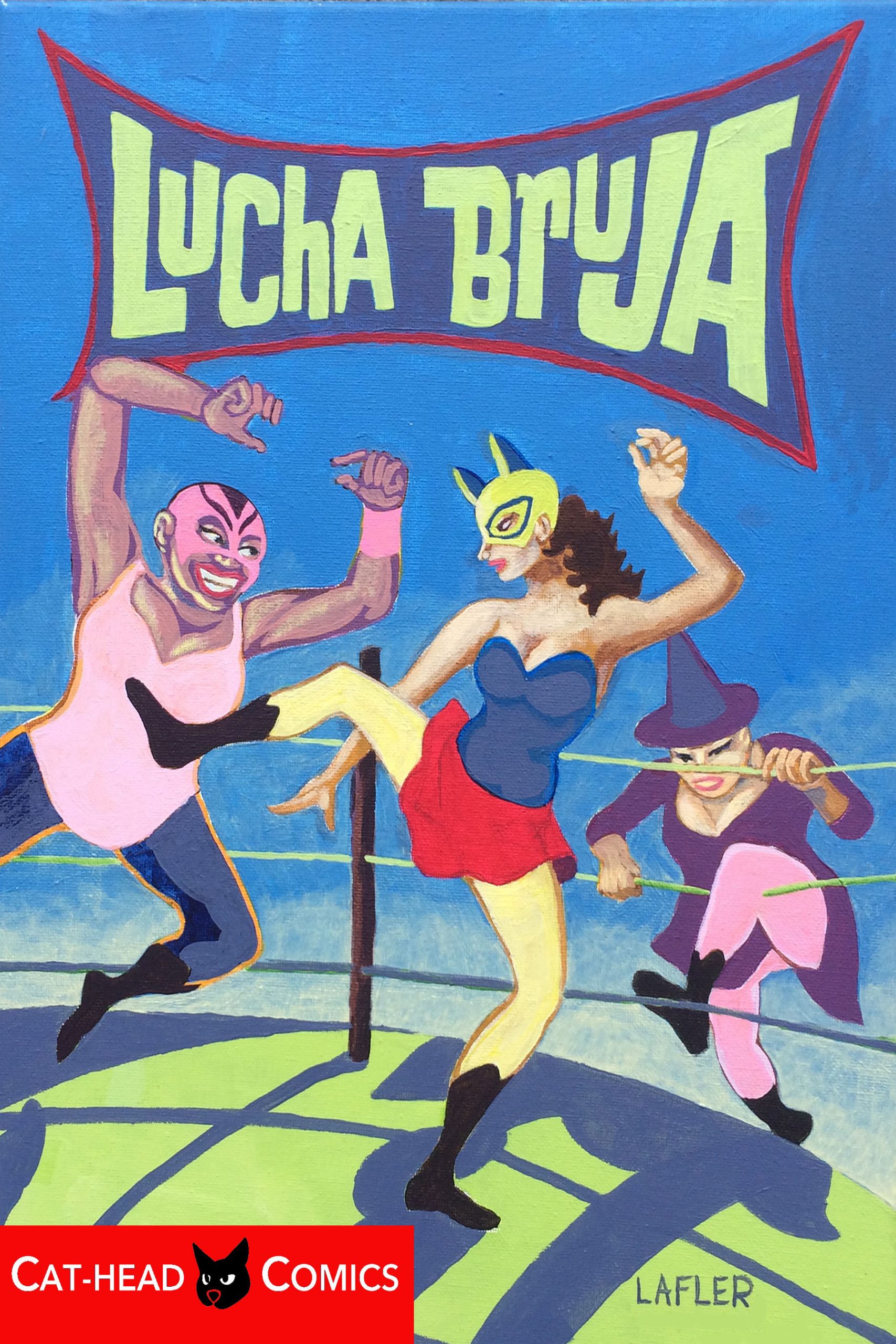You’ve been working on your comic for what probably seems like forever and finally, you feel that you are ready to share it with the world. Of course, you can always go the route of self-publishing, but that carries with it a number of obligations and expectations — printing, shipping, marketing — that you may not have the desire or the knowledge to take on. Thankfully, there are a number of amazing small press comics publishers who are constantly looking to expand their catalog and bring new voices into the world.
Unfortunately, though, as much as there are ethical publishers who want what’s best for the artists they publish, there are also bad actors who prey on the talents of young and new creators.
How do I move forward from an idea to a finished book? How should I approach the licensing of print and digital rights for my comics? Who owns the copyright for my work? How do royalties and advances work? There are a lot of questions about the publishing process, some of which are unique to comics, and some of which are standard areas of concern for working artists around the world.
Part of the goal of Fieldmouse Press, the nonprofit press that publishes SOLRAD, is to advance the comics arts. We see the continued social and economic success of cartoonists as integral to that goal. SOLRAD has devoted and will continue to devote resources to this area of focus.
To this end, we are running an ongoing feature at SOLRAD called KNOWING IS HALF THE BATTLE where we both feature an artist every week and ask for their advice about navigating the world of comics publishing, best practices for the business of comics, and other general advice.
For the initial interview series, Sarah Wray from Astra Editorial, who has worked with publishers such as Avery Hill, Liminal 11, and Breakdown Press, reached out to a number of cartoonists that she has worked with and provided them with the following prompting statements:
- The main thing(s) I expect from a comics publisher is/are…
- My #1 advice for submitting to agents and publishers…
- A sneaky red flag or shady thing I would warn new creators to look out for…
- I think it can be worth it to take a lower-paid illustration job in return for ___…
- If a publisher/offer seemed too good to be true, here’s how I’d check it out…
- An organization I’d go to for support if I needed advice or if something went wrong…
- My best tip for promoting your work online and at cons…
- To take care of your health / mental health as an artist, I recommend…
- I wish someone had told me ___ before I started working in the comics industry…
To add to the dialogue, we continue to reach out to cartoonists using this format. Today on The More You Know we’re featuring tips from Steve Lafler

Steve Lafler is a cartoonist and illustrator, who has worked with clients such as Sony Music, Bill Graham Presents, Apple Computer, and Sarah’s Science. Lafler says he’s “been fortunate to draw stuff that dovetails with my interests, including bugs, slugs, guitars, and cars.”
He’s also produced several graphic novels, including the critically acclaimed Bughouse trilogy. In the summer of 2012, publisher CO2 releases the collected trilogy under one cover in a volume entitled Menage a Bughouse. More information about Steve Lafler is available at his WEBSITE and his FB artist page


Steve Lafler
The main thing(s) I expect from a comics publisher is/are…
I expect a fair contract and open communication. Contracts are negotiable. I’ve crossed out stuff I don’t want and added stuff I do want. Bottom line, I look to foster a mutually beneficial relationship and to build trust.
Contracts can cover a lot. Certainly, how much you will be paid, and WHEN!
If there is no schedule of payments included, ask for it.
If a payment is missed, do not hesitate to call and ask for money. It’s just business, no one will be offended. Get comfortable being your own enforcer. You don’t have to be mean, just frank (and sometimes flexible.)
My #1 advice for submitting to agents and publishers…
Research which agents and publishers are looking for work that is similar to yours.
Agents are looking for specific types of books and stories. Agent and publisher websites lay out exactly what they are looking for. These days, young adult and middle age/grade are the BIG categories, this is what most graphic novel agents want. It is wonderful that there is a boom here, but must comics be mostly for kids? Hell no.
There are not many agents looking for “literary” graphic novels. There has to be something truly singular there to excite an agent to gushing enthusiasm over your book.
How to find a publisher? Create a ton of comics and print them and network with friends and build up a reputation among your peers. And, is it FUN? Is this your heart’s desire?
A sneaky red flag or shady thing I would warn new creators to look out for…
We all must make our own mistakes, that is how we learn.
But remember this: If you don’t like a deal, job, or contract, your ultimate power is to walk away from it. Do not accept any deal where you are “working angry”.
I think it can be worth it to take a lower-paid illustration job in return for ___…
Most cartoonists should not be illustrators. We want to tell stories, not have an illustration career. If you WANT to do an illustration job, that is different. I was lucky to find a few clients in the music business, I got to draw stuff for people like Mike Watt/fIREHOSE and Leonard Cohen, to name a couple.
Never do corporate illustration work unless you can get a ridiculous amount of money. Keep the rights! Charge by “usage”, get paid every time the illustration is used with corporate or advertising work. If they want a “buyout”, charge a buttload of cash. You are worth it, they are making bank on your talent.
If a publisher/offer seemed too good to be true, here’s how I’d check it out…
A) Talk to people who’ve worked with them and B) show the offer to a lawyer, and to your mom.
An organization I’d go to for support if I needed advice or if something went wrong…
Consult your network of peers, always, and the Graphic Artists Guild is a great organization. They offer some inexpensive membership tiers. I was a member for a few years and learned a lot about contracts and rights.
My best tip for promoting your work online and at cons…
Success in business is largely defined as building and sustaining mutually beneficial relationships. Listen, be kind, make friends, trade books, don’t stalk, have fun, get a table or booth if you can afford it, and split expenses with your friends.
To take care of your health / mental health as an artist, I recommend…
Have a practice that includes physical activity. I’ve been a runner my whole life, a one hour run relaxes me and untangles problems, rhythm and breathing over time will do that for you.
I wish someone had told me _ before I started working in the comics industry…
Don’t spend the first ten years of your career hammered (well, at least I had a strong work ethic…)
SOLRAD is made possible by the generous donations of readers like you. Support our Patreon campaign, or make a tax-deductible donation to our publisher, Fieldmouse Press, today.

Leave a Reply